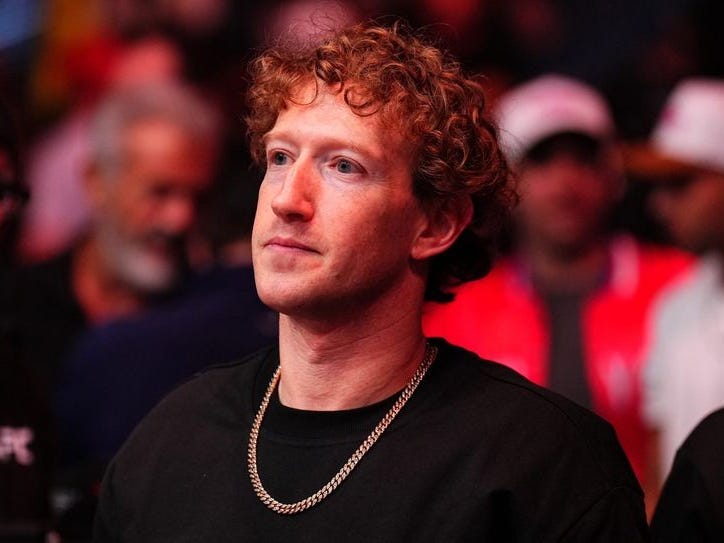Mark Zuckerberg said there are very few ‘seats on the boat’ of his AI lab, which doesn’t have top-down deadlines
-
Mark Zuckerberg said that roles in Meta’s superintelligence lab were “precious,” comparing it to seats on a boat.
-
“If someone isn’t pulling their weight on that, then that has this huge negative effect,” he told newsletter writer Rowan Cheung.
-
Zuckerberg also said that the team doesn’t have top-down deadlines and has flattened management.
The entire Meta superintelligence lab could sit on a Boeing 737 Max — and still have seats to spare.
Meta CEO Mark Zuckerberg likens it more to a boat where seats are extremely limited.
“Seats on the boat are precious,” Zuckerberg said on “The State of AI with Rowan Cheung” podcast. Any bad hires or organizational bloat could weigh the whole operation down.
“You don’t need many, many hundreds of people — you need 50 to 100 people,” Zuckerberg said. “It’s a group science project.”
Zuckerberg recently said that he was looking to build “small, talent-dense teams” to progress the company’s AI vision. Landing a job on the team has its perks: many researchers score multimillion-dollar pay packages, access to wide swaths of capital for GPU computing costs, and face decreased deadline pressures from corporate leadership (at least, that’s what Zuckerberg says).
Meta began its hiring spree for the superintelligence lab when Zuckerberg decided that its Llama-4 AI model was “not on the right trajectory,” he said. The company spent $15 billion to acquire nearly a 50% stake in Scale AI in a deal that also saw CEO Alexandr Wang join Meta to lead Zuckerberg’s superintelligence lab.
Meta spent many, many millions more to hire for the AI lab’s supporting positions, poaching top talent from OpenAI and Google DeepMind, among others. Zuckerberg said that the superintelligence team was especially talent-sensitive.
“If someone isn’t pulling their weight on that, then that has this huge negative effect, in the way that it doesn’t for a lot of other parts of the company,” he said.
Once they’ve made it to one of the superintelligence lab’s extremely limited seats, researchers won’t face any top-down deadlines, Zuckerberg said.
“It’s research — you don’t know how long the thing is going to take,” he said. “Everyone’s competitive. They all want to be at the frontier and doing leading work. Me setting a deadline for them isn’t going to help.”
Big Tech — and Meta specifically — have led a widespread flattening of the corporate workforce org structure, thinning out the number of middle managers in an effort to move faster with fewer layers. While other companies like Google and Microsoft have joined the trend in recent years, Zuckerberg has long been speaking out about the need to flatten management.



Leave a Comment
Your email address will not be published. Required fields are marked *